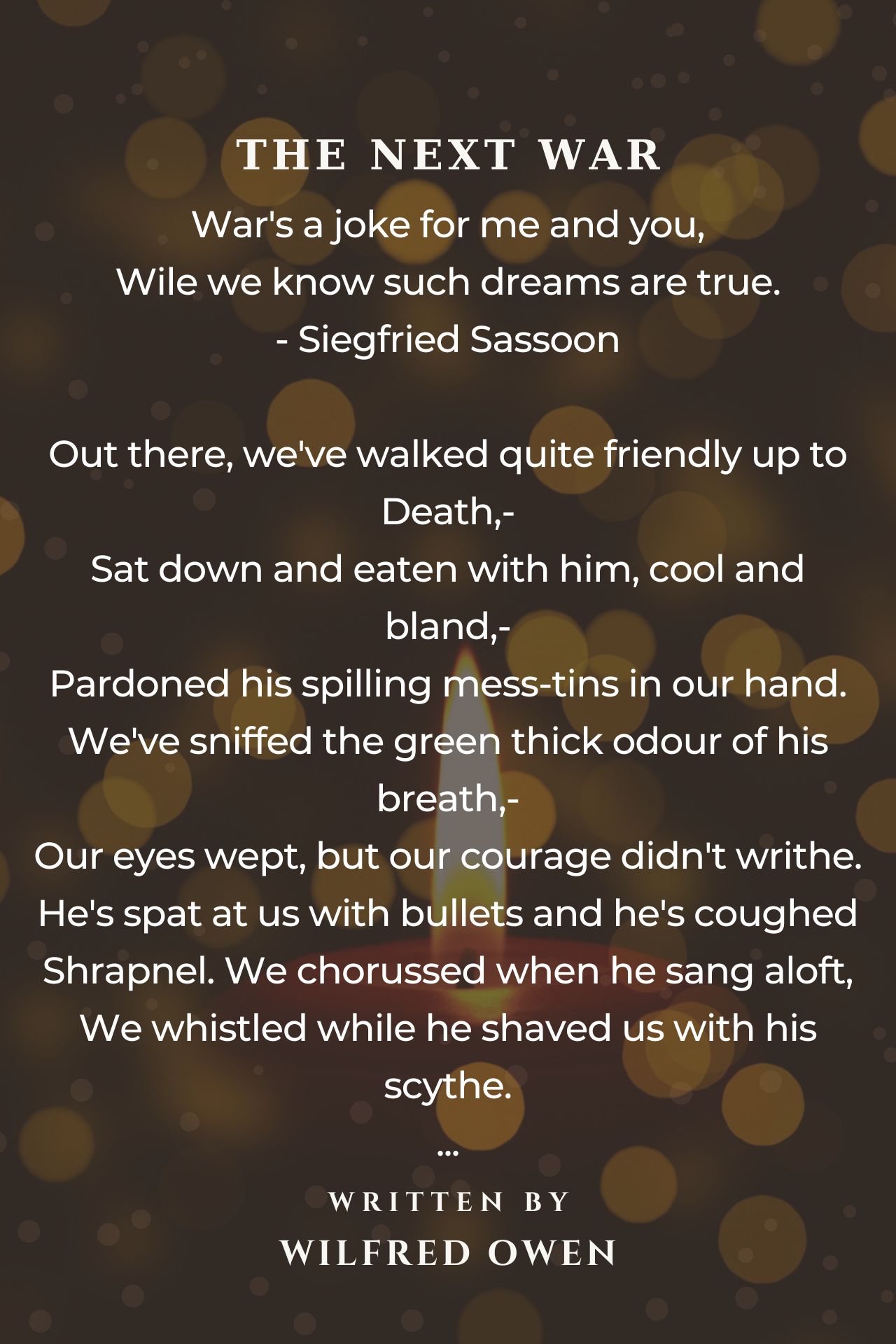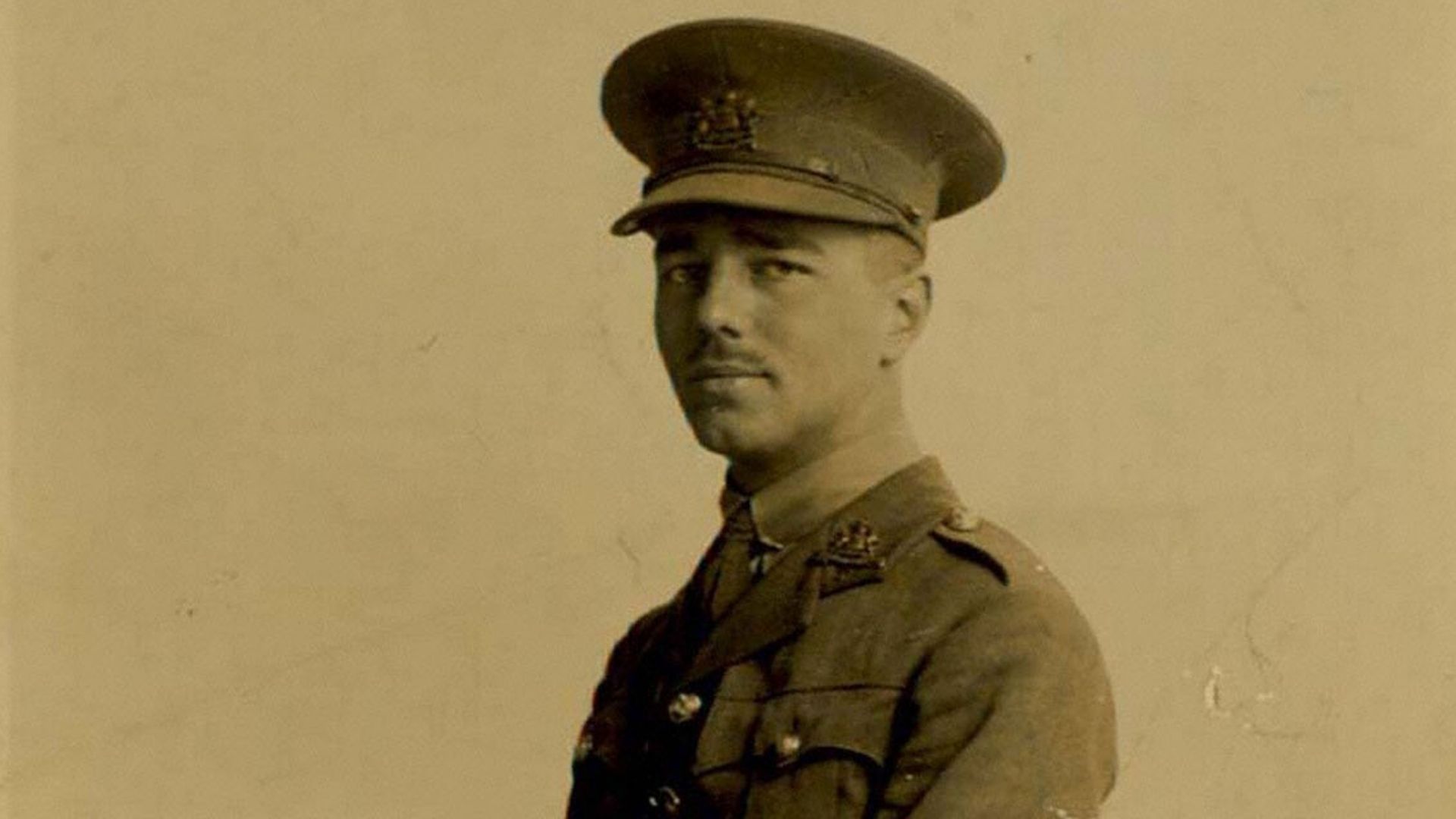The Next War Poem by Wilfred Owen
The Next War
War's a joke for me and you,
Wile we know such dreams are true.
- Siegfried Sassoon
Out there, we've walked quite friendly up to Death,-
Sat down and eaten with him, cool and bland,-
Pardoned his spilling mess-tins in our hand.
We've sniffed the green thick odour of his breath,-
Our eyes wept, but our courage didn't writhe.
He's spat at us with bullets and he's coughed
Shrapnel. We chorussed when he sang aloft,
We whistled while he shaved us with his scythe.
Oh, Death was never enemy of ours!
We laughed at him, we leagued with him, old chum.
No soldier's paid to kick against His powers.
We laughed, -knowing that better men would come,
And greater wars: when each proud fighter brags
He wars on Death, for lives; not men, for flags.

Death was never enemy of ours! We laughed at him, we leagued with him, old chum good writing

Death is personified but it fails to stir up emotions of fear and grief. The soldier on the front becomes insensitive to the fear of death. Although it can come in many forms, the soldier comes to accept the gamble. In the first verse, death is the explosion that is responsible for “spilling the mess-tins in our hands”. It is the gas attack and the soldiers have “sniffed the green thick odour of his breath. The bullets are “coughed” and the shrapnel is “spat”. But at the end of this verse death becomes the traditional harvester with his scythe killing indiscriminately. Death cannot be an enemy to the soldier. It has become a constant companion because the soldier has killed too: “we leagued with him”. How can the soldier hold it against Death if war itself is part of the conspiracy of killing? “No soldier’s paid to kick against His powers.” Wars will come and wars will go and Death will always be there on the side of the allies and on the side of the enemy – fighting “for lives; not men, for flags”. It is not concerned with allegiances, ideologies, principles or patriotism. So, whatever will cause it, the next war will be another triumph for Death.